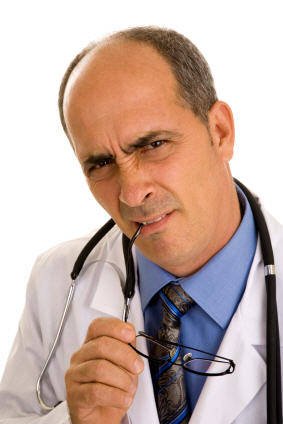Are You Sick if You Think You Are Sick?
There’s a lot to be said out there about making ourselves sick. I mean after all isn’t what we think at least half of the problem? Actually that’s a great question. How much of an illness is our own perception? Conventional medicine says that if something does not appear in testing, then it is probably not an issue or it’s all in your head. That’s a very different view from natural medicine which assumes that if you think something is “off”, chances are that something is. So just because something isn’t visible in a “test” doesn’t mean that everything is fine.
There may be an argument to be made that we create our own illness or health. But how frustrating is it to really believe something isn’t right and no matter how many physicians you see, they all say there is nothing wrong. This is a common complaint more and more because conventional medicine strictly relies on the black and white of testing in order to confirm illness. This is such an outdated view because as we now realize, the body has several layers of function including emotional health, energetic health, environmental health, structural health and physiological health, to name a few. Objective testing can only confirm issues within a few of these layers which is so limiting because we are not factual creatures that produce conveniently objective symptoms. In fact many of our symptoms are not just subjective, they are unique to each one of us. You can’t assume that symptoms in one person mean they have exactly the same illness as the same symptoms in another person. After all, symptoms are not illness, they are the strategies the body is using to maintain balance or overcome an unbalanced condition. Sometimes symptoms are simply the body’s way of pointing out that it is overwhelmed, unable to meet all the demands upon it. We can have symptoms when the body is doing perfectly normal activities like detoxifying, increasing blood flow, fighting off an infective agent.
So if someone steps into their doctor’s office and says they are very tired, what could be the reason? Automatically it will be blood testing to look at Vitamin B’s, thyroid function, iron, blood sugar or C-Reactive Protein. If that doesn’t point to something, it might be a sleep apnea test. After that it could be a prescription for an anti-depressant or the quiet suggestion of a therapist. The lesson here is to understand that your physician is limited in their ability to help you. They are restricted by our medical system’s reliance on test results as an essential tool of confirming an illness, regardless of how you feel. They are limited by insurance companies in what actual tests they can choose and what their recommendations can be. They are limited by scheduling in how much time they can discuss things like your diet, your stress, your daily routine, your sleep.
In looking at fatigue as our example, there are so many more things that can cause fatigue than testing can identify. This means that your determination to justify your inner knowledge could lead you miles past objective conventional tests to environmental concerns, allergies, adrenal hormone issues, body inflammation, feng shui of your sleeping space, your heavy work schedule, your diet, your caffeine consumption, even unresolved closed head injury. But the important fact here is not the results of any tests, it’s the very fact that you know something is “off”. In fact, your perception of what is going on is really the path to follow.
So what I’m encouraging you to do is trust yourself and remember that you are the one living in that body every minute of every day. Whatever your perception is of your symptoms, it’s the right perception. This is not to say that worry doesn’t make our symptoms worse or that jumping straight to the brain tumor explanation as the probable cause of a headache is the most logical approach. But settling for the idea that nothing is really an issue is not the most logical approach.
If you want a different view of what the landscape actually looks like, you have to move to a different spot to view it. Always returning to conventional medicine when they don’t have an answer for you is like pulling up a bucket from a dry well over and over.
